
The British Armed Forces are the military forces responsible for the defence of the United Kingdom, its Overseas Territories and the Crown Dependencies. They also promote the UK's wider interests, support international peacekeeping efforts and provide humanitarian aid.

The Portuguese Armed Forces are the military of Portugal. They include the General Staff of the Armed Forces, the other unified bodies and the three service branches: Portuguese Navy, Portuguese Army and Portuguese Air Force.

The Ministry of Defence is the department responsible for implementing the defence policy set by His Majesty's Government, and is the headquarters of the British Armed Forces.

A commander in chief or supreme commander is the person who exercises supreme command and control over an armed force or a military branch. As a technical term, it refers to military competencies that reside in a country's executive leadership, a head of state, head of government, or other designated government official.
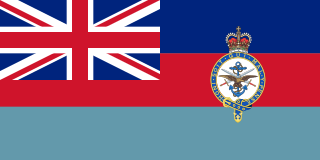
The Chief of the Defence Staff (CDS) is the professional head of the British Armed Forces and the most senior uniformed military adviser to the Secretary of State for Defence and the prime minister of the United Kingdom. The chief of the defence staff is based at the Ministry of Defence and works alongside the Permanent Under-Secretary of State for Defence, the ministry's senior civil servant. The Chief of Defence is the highest ranking officer to currently serve in the armed forces.

The Chiefs of Staff Committee (CSC) is composed of the most senior military personnel in the British Armed Forces who advise on operational military matters and the preparation and conduct of military operations. The committee consists of the Chief of the Defence Staff who is the chairman and professional head of the forces, the Vice-Chief of the Defence Staff, who is the vice-chairman and deputy professional head of the armed forces. The committee also consists of the professional heads of each branch of the armed forces: the First Sea Lord and Chief of the Naval Staff, the Chief of the General Staff and the Chief of the Air Staff.

The Chief of the Air Staff (CAS) is the professional head of the Royal Air Force and a member of both the Chiefs of Staff Committee and the Air Force Board. The post was created in 1918 with Major General Sir Hugh Trenchard as the first incumbent. The current and 30th Chief of the Air Staff is Air Chief Marshal Sir Richard Knighton, who succeeded Sir Michael Wigston on 2 June 2023.

The Admiralty Board is the body established under the Defence Council of the United Kingdom for the administration of the Naval Service of the United Kingdom. It meets formally only once a year, and the day-to-day running of the Royal Navy is conducted by the Navy Board, which does not include any ministers.

The Defence Council of the United Kingdom is the supreme governing body of the British Armed Forces. It was established by the Defence Act 1964, which statutorily delegated the military authority of the Crown, as head of the Armed Forces, to the Defence Council. It has the power of "command and administration" over the military.
The Ministry of Defence is the public service department of New Zealand responsible for advising the government on strategic defence policy, acquiring military equipment to meet defence capability and conducting audits and assessments of the New Zealand Defence Force.

The United Kingdom's Strategic Command (StratCom), previously known as Joint Forces Command (JFC), manages allocated joint capabilities from the three armed services.

The Ministry of Defence (MoD) is charged with coordinating and supervising all agencies and functions of the government relating directly to national security and the Indian Armed Forces. The President of India is the ceremonial commander-in-chief of the armed forces of the country. The Ministry of Defence provides policy framework and resources to the armed forces to discharge their responsibility in the context of the defence of the country. The Indian Armed Forces and Indian Coast Guard under the Ministry of Defence are primarily responsible for ensuring the territorial integrity of India.
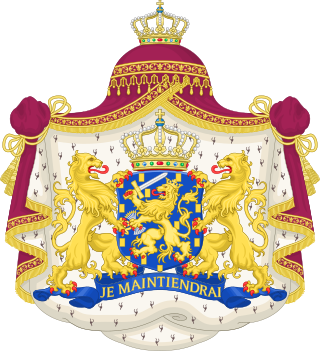
The Ministry of Defence is the Dutch ministry responsible for the armed forces of the Netherlands and veterans' affairs. The ministry was created in 1813 as the Ministry of War and in 1928 was combined with the Ministry of the Navy. After World War II in the ministries were separated again, in this period the Minister of War and Minister of the Navy were often the same person and the state secretary for the Navy was responsible for daily affairs of the Royal Netherlands Navy. In 1959 the ministries were merged once again. The ministry is headed by the Minister of Defence, currently Kajsa Ollongren, assisted by the Chief of the Defence, Onno Eichelsheim since April 2021.
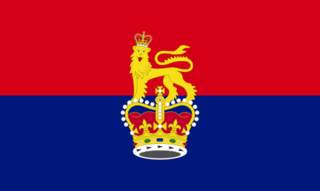
The Army Board is the top single-service management committee of the British Army, and has always been staffed by senior politicians and soldiers. Until 1964 it was known as the Army Council.

The Ministry of Defence is a Ministry of the Federal Government of Nigeria with the statutory responsibility of overseeing and supervising the Nigerian Armed Forces. The Ministry of Defence is headed by the Minister of Defence, a cabinet-level head who reports directly to the President of the Federal Republic of Nigeria. Its main mission is to provide administrative and support services, timely and effectively to enable the Armed Forces of the Federal Republic of Nigeria.
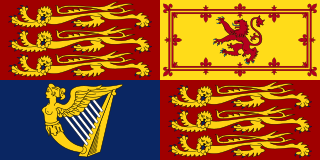
Head of the Armed Forces is the position of the sovereign of the United Kingdom as commander-in-chief of the British Armed Forces. However, supreme military authority has been delegated by the monarch to the Defence Council of the United Kingdom, a body officially charged with the direction and administration of the Armed Forces.

The Ministry of Defence (MINISDEF) is the department of the Government of Spain responsible for planning, developing and carrying out the general guidelines of the Government about the defence policy and the managing of the military administration. It is the administrative and executive body of the Spanish Armed Forces.
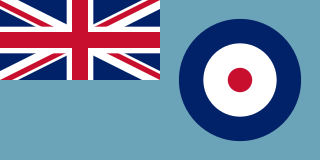
Air Council was the governing body of the Royal Air Force until the merger of the Air Ministry with the other armed forces ministries to form the Ministry of Defence in 1964. It was succeeded by the Air Force Board.
Air Vice-Marshal David Paul Murray, is a retired senior Royal Air Force officer. He served as Defence Services Secretary in the Royal Household from 2010 to 2012. He is currently a member of the Veterans Advisory Board and a Deputy Lieutenant for the County of Suffolk.

The Navy Department was a former ministerial service department of the British Ministry of Defence responsible for the control and direction of His Majesty's Naval Service. It was established on 1 April 1964 when the Admiralty was absorbed into a unified Ministry of Defence, where it became the Navy Department. Political oversight of the department originally lay with the Minister of Defence for the Royal Navy (1964-1967) it then passed to the Parliamentary Under-Secretary of State for Defence for the Royal Navy (1967–1981), then later to the Parliamentary Under-Secretary of State for the Armed Forces (1981-1990), and finally the Parliamentary Under-Secretary of State for Defence (1991–1997).
















